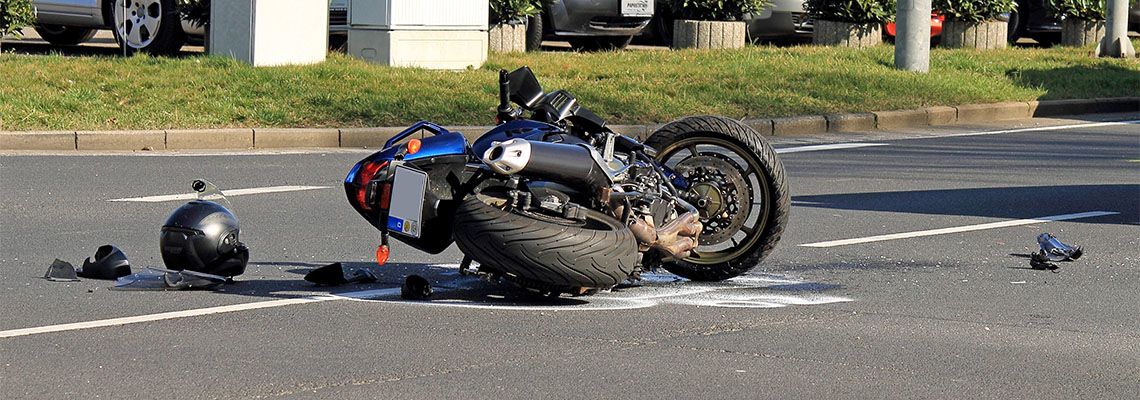Secure Future GET STARTED WITH A FREE CONSULTATION

Motorcycle Laws in North Carolina
Unfortunately, a motorcycle accident can happen even if you take all the necessary precautions to ensure safety and follow all applicable laws. However, the importance of understanding and complying with motorcycle laws cannot be overstated if you own a bike in North Carolina.
Whether or not a motorcycle rider and other parties involved were following traffic laws will have a tremendous impact on the determination of fault and the parties’ ability to recover damages. As a motorcycle accident attorney, I can explain how motorcycle laws and general traffic rules can affect your particular case.
With an office in Wilmington, North Carolina, I serve those involved in motorcycle accidents and other types of motor vehicle crashes throughout the state of North Carolina, including Pender, New Hanover, Onslow, and Brunswick Counties. Contact me at Robert Louis Armstrong Personal Injury Attorney for legal assistance today.
Motorcycle Laws in North Carolina
Generally, motorcycle riders in North Carolina are subject to the same traffic laws as all other drivers on the state’s roads. However, there are some laws that apply specifically to motorcyclists in North Carolina:
Helmets: All motorcycle (and even moped) riders and passengers are legally required to wear helmets when on the road. A helmet must be properly secured with a retention strap and must be in compliance with the requirements outlined in the Federal Motor Vehicle Safety Standard #218.
Lane splitting: Although motorcycle laws in North Carolina do not expressly permit or ban lane splitting, the practice of riding between lanes of traffic is considered a dangerous maneuver that could increase the likelihood of accidents. At the same time, North Carolina law does not prohibit motorcycles from being operated two abreast in a single lane.
Passengers: North Carolina law prohibits motorcycle and moped riders from carrying more passengers than the motorcycle/moped is designed to carry. Unlike some other states, North Carolina law does not impose age restrictions on bike passengers.
High-occupancy vehicle (HOV) lanes: Motorcycle laws in North Carolina permit motorcycles with two or more passengers to use HOV lanes to make roads less congested during heavy traffic.
Traffic lights controlled by inductive loop detectors: Many traffic lights in North Carolina are controlled by inductive loop detectors. The problem with these detectors is that they may not always recognize motorcycles. For this reason, motorcyclists are allowed to proceed through a red light controlled by these detectors if (1) the motorcyclist has come to a complete stop, (2) the motorcyclist has waited at least three minutes for the light to change, (3) there are no pedestrians attempting to cross through or near the intersection, and (4) there are no other vehicles with the right of way approaching, traveling through, or stopped at the intersection.
Statute of limitations: Also known as the deadline for filing a lawsuit, a statute of limitations is something you should be aware of if you or someone you love has been involved in a motorcycle accident. In North Carolina, the deadline for filing a personal injury lawsuit is three years from the date of the accident. If your loved one died in a motorcycle accident, a wrongful death lawsuit must be brought within two years from the date of death.
This is not an exhaustive list of motorcycle laws in North Carolina that could affect the determination of fault and other aspects of your legal claim. Reach out to a knowledgeable attorney who can evaluate your situation and explain your options for seeking compensation.
What to Do if You Were in a Motorcycle Accident
If you were in a motorcycle accident, the first thing to do is to make sure you and anyone else involved in the accident are safe. Get to safety and check if you or anyone else needs medical attention. Call 911 immediately if anyone is injured or if there is significant property damage.
Once everyone is safe, exchange contact and insurance information with the other party(s) involved in the accident. Take pictures of the accident scene and any damages, and document any injuries you or anyone else might have sustained. Get the contact information of people who witnessed the accident.
Notify your insurance company of the accident to report the accident. After taking the above-mentioned steps, contact an attorney who will guide you through the claims process and help you get the compensation you deserve.
What to Do If Your Loved One Was Injured in a Motorcycle Accident
If your loved one was involved in a motorcycle accident, the first thing to do is to get them the medical attention they need. This could involve calling 911 or taking them to the emergency room if the injury is not severe.
Once they are safe and have received the care they need, you can help them document any injuries and damages sustained in the accident. You should also document any property damage to the motorcycle and take pictures of the accident scene.
It is equally important to seek legal representation from a skilled attorney after your loved one was injured in a motorcycle accident. An attorney can help you understand your loved one’s legal rights and explain your options for seeking compensation on their behalf.
Rely on Experienced Legal Counsel After an Accident
Whether you or a loved one have been in a motorcycle accident, it is important to take immediate action. As a motorcycle accident attorney, I can provide you with the reliable legal counsel you need to navigate the legal process and obtain fair compensation. Contact my office—Robert Louis Armstrong Personal Injury Attorney—in Wilmington, North Carolina, today to set up a free initial consultation.

